Show explores role of forgotten Black abolitionists
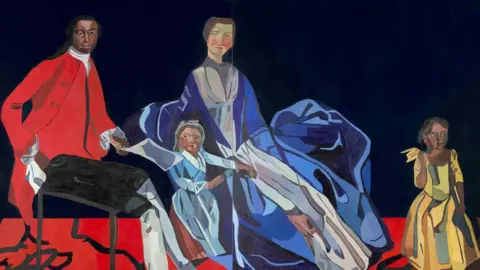 Fitzwilliam Museum, University of Cambridge
Fitzwilliam Museum, University of CambridgeThe often-forgotten contributions of Black Georgian and Victorian people will be told in an exhibition about the fight to end transatlantic slavery and its aftermath.
It will explore "how African enslavement impacted everything", said the University of Cambridge organisers.
The stories of abolitionists such as Olaudah Equiano and Phillis Wheatley will be included, as well as looking at what happened to newly-emancipated Caribbean slaves, forced to live as apprentices in slavery-like conditions.
Curator Luke Syson said Rise Up would focus "on the testimony of individuals as a powerful tool of resistance - and as a way of helping others to recognise injustice".
"The exhibition will celebrate and commemorate the roles of both familiar and lesser-known figures in the struggle for abolition," the Fitzwilliam Museum's director and Marlay curator added.
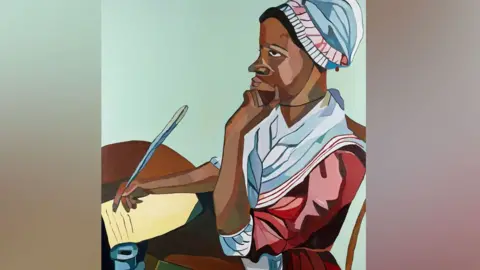 Stuart Whipps
Stuart WhippsRise Up covers the years between 1750 and 1850 and will include 100 historic and contemporary artworks, objects, printed books and manuscripts.
These are on loan from Canada, Puerto Rico, France and the USA, as well as the university's collections and those from across the UK.
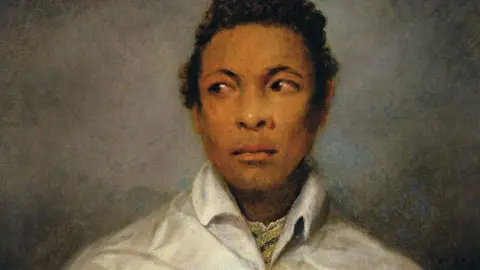 Bridgeman Images
Bridgeman ImagesIt will begin by focusing on Olaudah Equiano, one of the most famous Black abolitionists of the 18th Century, whose powerful testimony was vital to the British anti-slavery campaign.
He was kidnapped into slavery as a boy and later managed to purchase his freedom.
After publishing his autobiography in 1789, he toured Britain to sell it and promote abolition and Black rights - meeting Susannah Cullen and marrying her in Soham, Cambridgeshire.
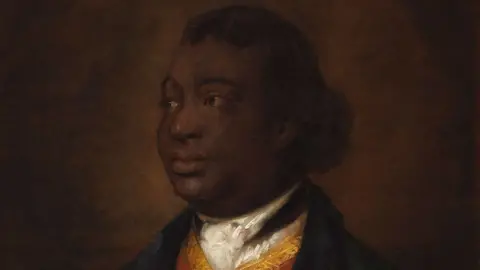 National Gallery of Canada
National Gallery of CanadaThe exhibition will examine life on Caribbean plantations and the ways African people and their descendants resisted oppression, as well as the role of Black campaigners from the London-based grassroots group, The Sons of Africa.
They worked in tandem with white Quakers and Anglican abolitionists.
It will also cover the failed schemes to resettle former slaves, from the harsh treatment of Black Loyalists who were resettled in Nova Scotia, Canada after the American Revolution, to the creation of Sierra Leone.
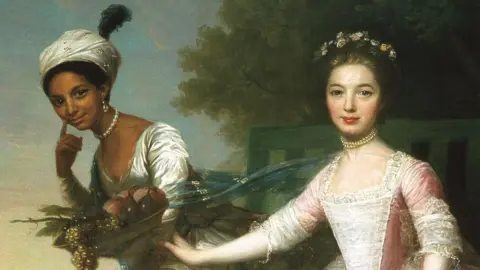 Earl of Mansfield, Scone Palace
Earl of Mansfield, Scone PalaceThe 1807 Abolition of the Slave Trade Act made it illegal for British people and ships to trade enslaved people anywhere in the Empire.
This resulted in major uprisings of enslaved people - including in British colonies - and helped drive forward the 1833 Slavery Abolition Act.
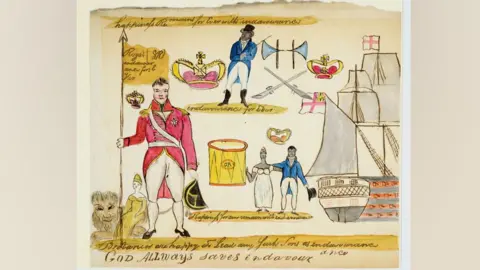 The National Archives
The National ArchivesBut while the enslavers were "compensated" for loss of property, their former slaves were forced to become apprentices, unable to live and work freely.
"Rise Up will explore the complex fight to end transatlantic slavery and its ongoing impact," said Mr Syson.
- Rise Up: Resistance, Revolution, Abolition opens on 21 February and runs until 1 June.
Follow Cambridgeshire news on BBC Sounds, Facebook, Instagram and X.
